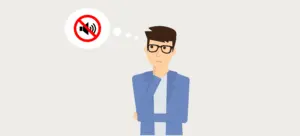Licensing organizations aren’t letting up. The push is on to collect fees (and in some case penalties) for playing music on hold. It is your responsibility to know hold music licensing fees work.
Paying for Music on Hold Licenses
Hold music licensing is no joke. Organizations are reaching out to ensure companies have full marketing compliance for hold music. If you don’t use a music on hold service like Easy On Hold, you’ll need to pay hold music licensing fees.
Here is a letter one of our clients in Chicago received, requesting “payment of fees”.
Note: This company will not need to pay, of course, because they use Easy On Hold for professional music on hold service.
“I have recently written and contacted you concerning our offer of the ASCAP license to authorize the performance of copyrighted music in your business. As of today’s mail, we have not received your signed license agreement and payment of fees.
It is important for you to remember that the performance of any copyrighted music in a public establishment must have the permission of the copyright owner, that is, the songwriter or publisher. ASCAP represents the majority of the world’s most popular music, so our license is the easiest way for you to secure that permission.
The enclosed brochure explains your rights and responsibilities under the copyright law. If you or your attorney have questions that remain unanswered by our literature, please do not hesitate to contact me at the number below.
Otherwise, please sign the enclosed license agreement and send it to us with fees as specified on the invoice. An executed copy of the agreement will be returned to you.
For your convenience, you may pay your ASCAP license fees by fax. Simply complete the credit/debit card information on the invoice and fax it, along with both pages of your signed license agreement, to (615) 691-7724. You may also pay fees by phone by calling me at the number below and providing me with the appropriate checking account information.
Sincerely,
ASCAP, PO Box 331608-7515, Nashville, TN 37203-9998”
If you receive a letter like this, verify the source. Also, don’t ignore it. You’ll need to seek legal advice on how to best proceed with it. Since one of our clients received this, they wouldn’t need to pay because we handle all the hold music licensing fees.
How Music On Hold Licenses Work
To understand fees, you need to understand how hold music licensing works. Music licensing exists to make sure songwriters and publishers get paid when their work is used publicly. This includes hold music for businesses, which counts as a “public performance.”
When you play music for customers on hold, you need a license. In the U.S., organizations like ASCAP, BMI, and SESAC manage these licenses. They collect fees and pay royalties to the people who created the music.
Here’s the catch: buying a song from iTunes or Amazon doesn’t mean you’re allowed to play it for customers.
That requires a separate music on hold license.
If you don’t have one, you could face fines or legal trouble. For businesses, marketing compliance often means signing contracts with multiple licensing organizations. This takes time, money, and effort.
How Easy On Hold Makes It Simple
With Easy On Hold, you don’t need to worry about hold music licensing. We take care of all the fees and agreements for you. Every track provide is fully licensed and legal to use.
This means you can focus on your business while knowing your hold music is handled. Plus, the music is professional and tailored to your brand, so it sounds great and ensure you have marketing compliance.

The Hidden Costs of Royalty-free Hold Music
You might think that royalty-free hold music is a cheap and sweet fix to all you hold music woes, but it isn’t. The downsides can really hurt your business more than you realize. Just because something is labelled “royalty-free” that doesn’t always include the specific use case for hold music. You may still need to pay fees for public performance.
On top of that, there are more drawbacks that can affect your business’ bottom-line:
It Sounds Generic
Most royalty-free music libraries are filled with tracks that are overused, uninspired, and forgettable. This kind of music doesn’t help your business stand out. In fact, it can make your company feel just as generic as the music itself.
Imagine a customer hearing the same royalty-free track while calling multiple businesses. Instead of thinking about your brand, they’ll associate your hold music with dreaded elevator music.
It Can Tarnish Your Brand
The music you choose says a lot about your business. High-quality, professional hold music can make your company feel polished and reliable. On the other hand, cheap, low-quality, royalty-free music can make you seem unprofessional or careless.
If the music doesn’t align with your brand’s tone, it sends mixed signals that confuse your customers or make you seem out of touch.
There’s Limited Variety
Royalty-free hold music libraries are often smaller than licensed music services’ catalogs. You’ll have fewer options, making finding a track that fits your brand harder. Worse, countless other businesses often use these tracks, so your callers might hear the same music they’ve already heard elsewhere.
It Doesn’t Keep Callers Engaged
The main goal of hold music is to keep callers on the line and create a positive experience while they wait. Generic royalty-free hold music lacks the polish and personalization needed to achieve this. Instead of keeping customers engaged, stale music might annoy or cause them to hang up before you can help them.
Simplify Your Hold Music Licensing
Skip the confusing hold music licensing technicalities and avoid extensive fees with Easy On Hold. We help organizations create better customer experiences with custom messaging and popular hit music on hold.





